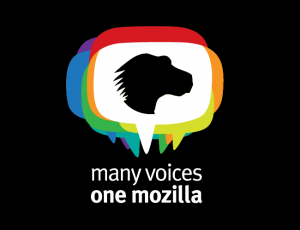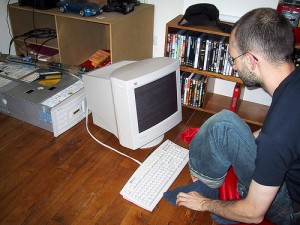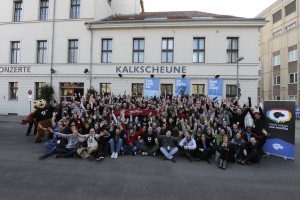Marzec 2012
Jako dziecko przeczytałem książkę z opowieściami o słynnym osiemnastowiecznym sędzim z Japonii o imieniu Ooka Tadasuke. Jedna ze spraw które rozsądzał została wniesiona przez właściciela baru z jedzeniem. Biedny student, który mógł tylko pozwolić sobię na ryż, jadł go, jednocześnie delektując się zapachami z kuchni dochodzącymi z tego baru. Właściciel chciał, by student zapłacił za zapachy, które dawały mu przyjemność. Student kradł jego zapachy!
Ta historia przypomina mi się za każdym razem, gdy słyszę o RIAA i MPAA oskarżających ludzi o kradzież muzyki i filmów.
Brzmi dla nas absurdalnie, by traktować zapachy jako własność. Ale mogę wyobrazić sobie sytuację, w której ktoś mógłby żądać opłat za zapachy. Wyobrażcie sobie, że żyjemy w bazie na księżycu, gdzie powietrze sprzedawane jest na litry. Mogę sobie wyobrazić dostawców powietrza dodających aromaty za dodatkową opłatą.
Powód, dla którego wydaje nam się absurdalne, by traktować zapachy jako własność wynika z tego, że taki system by nie działał. Na bazie księżycowej jednak, mógłby.
To co jest uznawane za własność zależy od tego co jesteśmy zdolni uznać za własność. A to nie tylko może się zmieniać, to się zmienia. Ludzie zawsze (dla pewnych definicji człowieka i zawsze) traktowali małe obiekty noszone przez osobę za własność. Ale ludy zbieracko-łowieckie nie traktowały ziemi, na przykład, jako własności w takim rozumieniu jak my. [1]
Powodem, dla którego tak wiele ludzi uznaje, że własność ma jedną, niezmienialną definicję, jest to, że ta definicja zmienia się bardzo wolno. [2] Tak się jednak składa, że znajdujemy się właśnie w środku takiej przemiany. Koncerny muzyczne i studia filmowe dystrybuowały to co tworzyły jak powietrze przez tuby na stacji księżycowej. Ale wraz z nadejściem sieci, przenieśliśmy się na planetę, której atmosferą możemy oddychać. Dane przenoszą się teraz jak zapachy. Koncerny i wytwórnie, przez połączenie myślenia życzeniowego i krótkoterminowej zachłanności, ustawiły się w pozycji tego właściciela baru, oskarżając nas wszystkich o kradzież ich zapachów.
(Powodem dla którego używam określenia “zachłannośc krótkoterminowa” jest fakt, że prawdziwym problemem z wytwórniami i studiami jest to, że ludzie, którzy nimi kierują są wynagradzani premiami, a nie akcjami. Gdyby byli nakręcani akcjami swoich firm, szukali by sposobów by wykorzystać przemianę technologiczną, zamiast walczyć z nią. Ale tworzenie nowych rzeczy trwa zbyt długo. Ich premie zależą od przyszłorocznych przychodów, a najlepszym sposobem by je podnieść jest wyciągnięcie więcej kasy z tego co już robią.)
Co to znaczy? Czy ludzie nie mają prawa, by naliczać za to co tworzą? Na takie pytanie nie istnieje prosta odpowiedź typu tak lub nie. Ludzie mają prawo naliczać za kontent kiedy naliczanie za kontent działa.
Ale przez “działa” mam na myśli coś bardziej subtelnego niż “kiedy im się uda”. Mam na myśli kiedy ludzie mogą naliczać za kontent bez zakładania kaftanów bezpieczeńśtwa na całe społeczeństwa, by móc to zrobić. Ostatecznie, firmy sprzedające zapachy na księżycu mogłyby nadal to robić na Ziemi, gdyby udało im się lobbingowo wymusić prawa zmuszające nas wszystkich do oddychania przez ich tuby także tutaj, choć nie jest nam to już konieczne.
Szalone kroki prawne, które podejmują te wytwórnie i studia właśnie tak wyglądają. Gazety i magazyny mają podobnie przerąbane, ale one przynajmniej odchodzą z wdziękiem. RIAA i MPAA zmusiłyby nas do oddychania przez tuby gdyby mogły.
Ostatecznie, wszystko sprowadza się do rozsądku. Kiedy naruszasz system prawny przez próbę wykorzystywania masowych pozwów przeciwko losowo wybranym ludziom jako formy przykładowego ukarania, albo lobbujesz za przepisami, które zepsułyby Internet gdyby udało się je przeforsować, to jest to ipso facto dowód, że używasz definicji własności która nie działa.
To właśnie w tym miejscu okazuje się, że fajnie mieć działające demokracje w wielu niezależnych krajach. Gdyby świat miał jeden, autokratyczny rząd, wytwórnie i studia mogłyby kupować prawa definiujące własność jako cokolwiek by chciały. Ale na szczęście są wciąż na świecie kraje, które nie są koloniami praw autorskich Stanów Zjednoczonych, a nawet w USA, politycy nadal obawiają się obywateli, jeśli tych zbierze się wystarczająco dużo. [3]
Ludzie, którzy rządzą USA mogą nie być zachwyceni kiedy obywatele lub inne kraje odmawiają nagięcia się do ich woli, ale ostatecznie leży to w naszym interesie, aby nie istniał jeden punkt, który ludzie chcący opakować prawo, by służyło ich interesom, mogliby zaatakować. Własność prywatna jest niesamowicie potrzebną ideą – możliwe, że jednym z największych wynalazków. Dotychczas, każda jej nowa definicja przynosiła nam rosnące bogactwo materialne. [4] Wydaje się być rozsądnym, by założyć, że najnowsza też to uczyni. Byłoby katastrofalne gdybyśmy wszyscy musieli korzystać z przestarzałej wersji tej definicji, tylko dlatego, że kilku potężnych ludzi jest zbyt leniwych, aby przejść na nowszą.
Przypisy
[1] Jeśli chcesz dowiedzieć się więcej o ludach zbieracko-łowieckich, polecam książkę Elizabeth Marshall Thomas “The Harmless People” oraz “The Old Way“.
[2] Zmiana w definicji własności jest zazwyczaj wynikiem postępu technicznego, a ponieważ postęp techniczny przyspiesza, można założyć, że tempo zmian w definicji własności również. To zaś oznacza, że tym ważniejsze jest dla społeczeństw, by mogły łagodnie reagować na te zmiany, ponieważ będą one następować coraz szybciej.
[3] Z tego co wiem pojęcie “kolonia praw autorskich” (ang. copyright colony) zostało użyte po raz pierwszy przez Mylesa Petersona.
[4] Stan technologii nie jest wyłącznie funkcją definicji własności. Każde z nich zawiera się w drugim. Ale pomimo tego, nie możesz mieszać w definicji własności bez wpływania na (i prawdopodobnie szkodzenia) stanowi technologii. Historia ZSSR daje nam żywy przykład iluistrujący taką sytuację.
autor: Paul Graham
tłumaczenie: moje (wersja do edycji)




